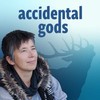
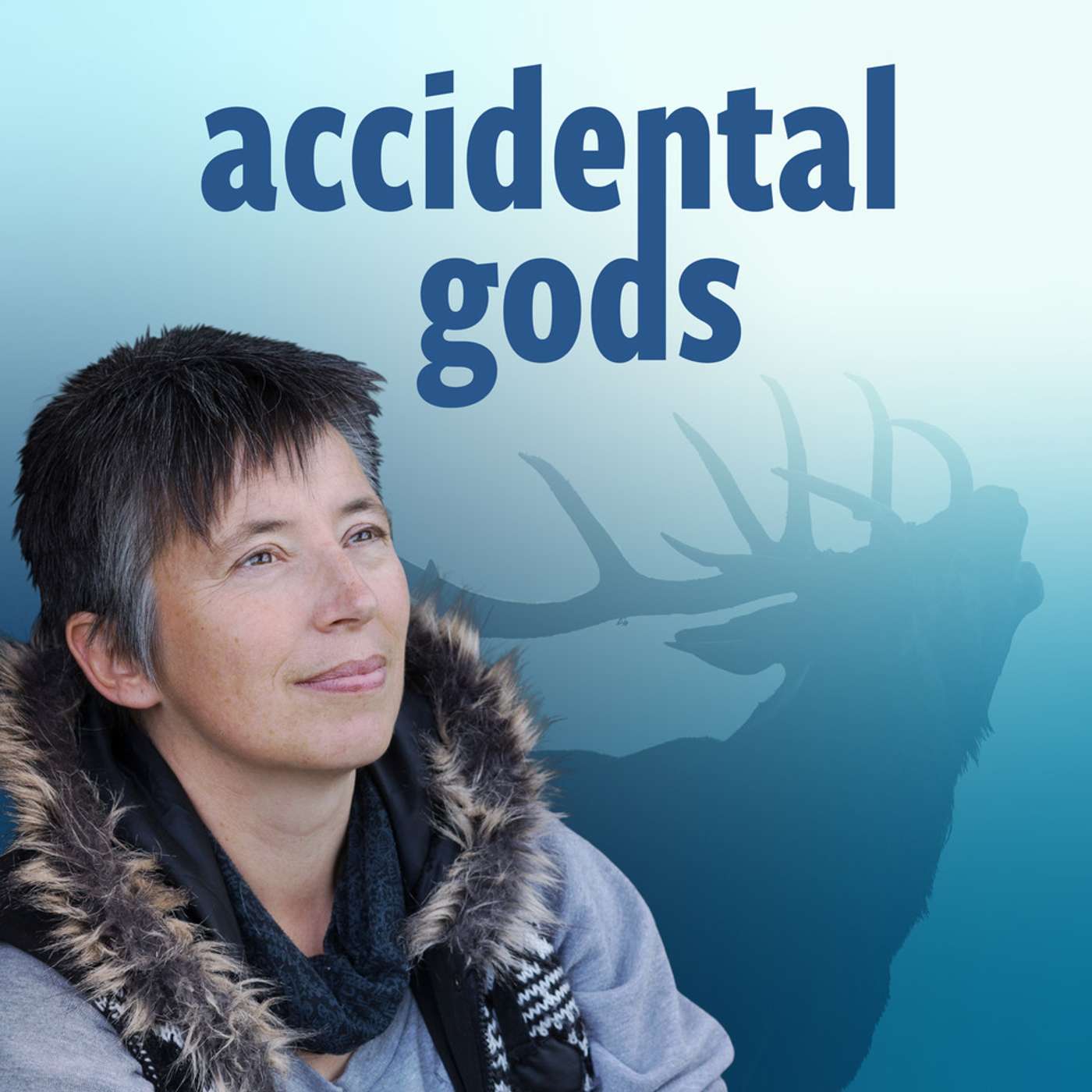
Accidental Gods
Accidental Gods
Another World is still Possible. The old system was never fit for purpose and now it has gone- and it's never coming back.
We have the power of gods to destroy our home. But we also have the chance to become something we cannot yet imagine,
and by doing so, lay the foundations for a future we would be proud to leave to the generations yet unborn.
What happens if we commit to a world based on generative values: compassion, courage, integrity?
What happens if we let go of the race for meaningless money and commit instead to the things that matter: clean air, clean water, clean soil - and clean, clear, courageous connections between all parts of ourselves (so we have to do the inner work of healing individually and collectively), between ourselves and each other (so we have to do the outer work of relearning how to build generative communities) and between ourselves and the Web of Life (so we have to reclaim our birthright as conscious nodes in the web of life)?
We can do this - and every week on Accidental Gods we speak with the people who are living this world into being. We have all the answers, we just (so far) lack the visions and collective will to weave them into a future that works. We can make this happen. We will. Join us.
Accidental Gods is a podcast and membership program devoted to exploring the ways we can create a future that we would be proud to leave to the generations yet to come.
If we're going to emerge into a just, equitable - and above all regenerative - future, we need to get to know the people who are already living, working, thinking and believing at the leading edge of inter-becoming transformation.
Accidental Gods exists to bring these voices to the world so that we can work together to lay the foundations of a world we'd be proud to leave to the generations that come after us.
We have the choice now - we can choose to transform…or we can face the chaos of a failing system.
Our Choice. Our Chance. Our Future.
Find the membership and the podcast pages here: https://accidentalgods.life
Find Manda's Thrutopian novel, Any Human Power here: https://mandascott.co.uk
Find Manda on BlueSky @mandascott.bsky.social
On LinkedIn https://www.linkedin.com/in/mandascottauthor/
On FaceBook https://www.facebook.com/MandaScottAuthor
We have the power of gods to destroy our home. But we also have the chance to become something we cannot yet imagine,
and by doing so, lay the foundations for a future we would be proud to leave to the generations yet unborn.
What happens if we commit to a world based on generative values: compassion, courage, integrity?
What happens if we let go of the race for meaningless money and commit instead to the things that matter: clean air, clean water, clean soil - and clean, clear, courageous connections between all parts of ourselves (so we have to do the inner work of healing individually and collectively), between ourselves and each other (so we have to do the outer work of relearning how to build generative communities) and between ourselves and the Web of Life (so we have to reclaim our birthright as conscious nodes in the web of life)?
We can do this - and every week on Accidental Gods we speak with the people who are living this world into being. We have all the answers, we just (so far) lack the visions and collective will to weave them into a future that works. We can make this happen. We will. Join us.
Accidental Gods is a podcast and membership program devoted to exploring the ways we can create a future that we would be proud to leave to the generations yet to come.
If we're going to emerge into a just, equitable - and above all regenerative - future, we need to get to know the people who are already living, working, thinking and believing at the leading edge of inter-becoming transformation.
Accidental Gods exists to bring these voices to the world so that we can work together to lay the foundations of a world we'd be proud to leave to the generations that come after us.
We have the choice now - we can choose to transform…or we can face the chaos of a failing system.
Our Choice. Our Chance. Our Future.
Find the membership and the podcast pages here: https://accidentalgods.life
Find Manda's Thrutopian novel, Any Human Power here: https://mandascott.co.uk
Find Manda on BlueSky @mandascott.bsky.social
On LinkedIn https://www.linkedin.com/in/mandascottauthor/
On FaceBook https://www.facebook.com/MandaScottAuthor
Episodes
Mentioned books
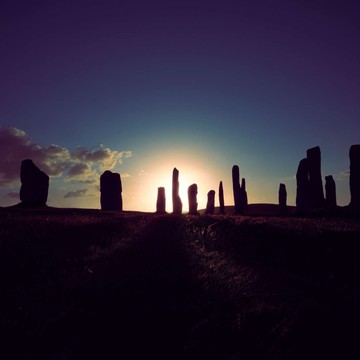
Dec 20, 2023 • 1h 26min
Solstice Dreaming: 3 podcasters gather round the Dark-Nights fire: Della Duncan, Nathalie Nahai and Manda Scott
This is the fourth year of our now-traditional Winter Solstice podcast get-together in which Nathalie Nahai, Della Duncan and I sit around our virtual dark-nights fire to reflect on the podcasting year just gone and explore what has changed for us since the last time the seeds of new beginnings were grounded in the heart of what has passed. This is becoming one of the highlights of my podcasting year - a chance to range far and wide and deep in the company of two women whose podcasts never fail to touch me deeply, and whose opinions on life, the universe and everything are always inspiring and enlightening. Della Z Duncan is a Renegade Economist based in the San Francisco Bay Area. She is a co-host of the Upstream Podcast, a Right Livelihood Coach, a faculty member at the California Institute of Integral Studies, a Senior Fellow at the London School of Economics, a founding member of the California Doughnut Economics Coalition, and the designer and co-facilitator of the Cultivating Regenerative Livelihood Course at Gaia Education.Nathalie Nahai is an author, keynote speaker and host of the Nathalie Nahai in Conversation podcast enquires into our relationship with one another, with technology and with the living world. She's author of the international best-sellers Webs Of Influence: The Psychology of Online Persuasion and, more recently, Business Unusual: Values, Uncertainty and the Psychology of Brand Resilience which has been described as “One of the defining business books of our times”. She's a consultant, artist and the founder of Flourishing Futures Salon, a project that offers curated gastronomical gatherings that explore how we can thrive in times of turbulence and change.Before we head into the conversation, I want to invite you to 'Dreaming Your Year Awake' which takes place on Sunday the 7th of January. This is our chance really to delve deeply into the year just gone, and look ahead at how we want to shape our attention and intention for the year that's coming. After all the outward connection of the holiday season, this is a time to go inwards, to be kind to ourselves, to explore all that we can be and want to be. This, too, is part of our Accidental Gods tradition and we have people who've come year after year to give themselves the gift of time and space and the company of people who share the journey. So please do come along, we would love to share this time with you. I've put a link in the show notes and it's also on the website accidentalgods.life under the 'Gatherings' tab. And now, People of the Podcast, please welcome Della Duncan, co-host of the Upstream podcast and Nathalie Nahai, host of the Nathalie Nahai podcast, and me. LinksSummer Solstice Meditation - Essence https://chrt.fm/track/8F5463/media.transistor.fm/6f621f9a/7a43d63f.mp3Summer Solstice Meditation with Birdsong With Birdsong https://chrt.fm/track/8F5463/media.transistor.fm/6f621f9a/7a43d63f.mp3Poem: The Invitation by Oriah Mountain DreamerTheory: Two Loop Theory by Meg Wheatley and Deborah Frieze Conversation: Marxism & Buddhism with Breht O'Shea on the Upstream Podcast Conversation: A Marxist Perspective on Elections with August Nimtz on the Upstream PodcastConversation: Beyond the Clock with Jenny Odell on the Upstream PodcastOrganization: California Doughnut Economics CoalitionRiversimple: Future Guardian Governance https://www.riversimple.com/governance/Planet Local Summit https://planet-local-summit.localfutures.org/about/Podcast: The way out is in: Grief and Joy on a Planet in Crisis: Joanna Macy on the Best Time To Be Alive (Episode #12)(https://plumvillage.org/podcast/grief-and-joy-on-a-planet-in-crisis-joanna-macy-on-the-best-time-to-be-alive-episode-12)Flourishing Futures Salon: https://www.ffsalons.comPre-order Any Human Power https://linktr.ee/anyhumanpower
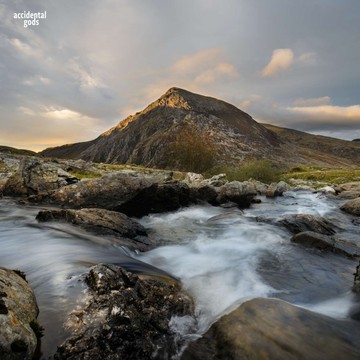
Dec 13, 2023 • 1h 1min
Bright Fires, Dark Nights: Connecting deeply and building tribe as we head to the Solstice with Angharad Wynne
This week, as we head down towards what, in the northern hemisphere at least, is the long nights, the dark nights, I wanted to explore our heritage, the way we celebrate the solstice in this land, the land of Britain. I'm aware that quite a lot of you listening are from the southern hemisphere where you're heading up to your long sun and your fires burn differently. I recorded a summer solstice meditation at our long days in June and when we get to the meditation - after the podcast with Della Duncan and Nathalie Nahai, I'll put that up. In the meantime, I hope this conversation with Angharad Wynne helps open doors to reconnection wherever you are in the world. Angharad is a story-teller, a placemaker, a myth-creator holder of tribe and of the land. A native of Wales, she is deeply connected to the land there, and holds retreats and workshops designed to help people connect with the living spirits of the land. In the podcast you're about to hear, she describes her 3 year "Dadeni" training which helps to create the deep tribe-connections, community-connections we speak about in the podcast. If you're interested in this, applications are open until 21st January and the link is in the show notes. I'd also like to remind you that if you have ideas of previous podcast guests - including Angharad, or anyone you've heard over the years - that you'd like us to invite for one of our Sunday evening 'Cutting Edge' events please click the link in the show notes, or go to the podcast section of the website and find the button there and let us know. this is your chance to talk to people, to ask the questions I didn't get around to asking, but you wish I had. And then afterwards, there'll be a chance to connect with other people in breakout rooms, to share your thoughts and ideas and ways of grounding what you've heard in everyday life. So, it's the dark month, the time when we rest, and regather and recoup. The time when we light the fire and invite our tribe to join us. In the spirit of connection, people of the podcast, please welcome, Angharad Wynne, a bard of Wales. Angharad's site https://www.angharadwynne.com/Dadeni Programme https://www.dadeni.org/Dreaming the Land https://www.dreamingtheland.com/aboutThree Degrees of Influence - https://exploringyourmind.com/impact-the-three-degrees-of-influence-theory/
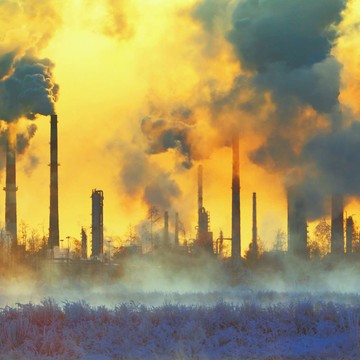
5 snips
Dec 6, 2023 • 1h 28min
Braced for Impact: Cutting through the Greenwash and Lies with Rachel Donald of Planet: Critical podcast
Rachel Donald, host of Planet: Critical podcast, discusses the global crisis, challenging carbon credits, navigating power dynamics, revolutionizing systems, and legal challenges with ISDS. She emphasizes the need for systemic change through collaboration, sustainability, and building a transnational Green Party.
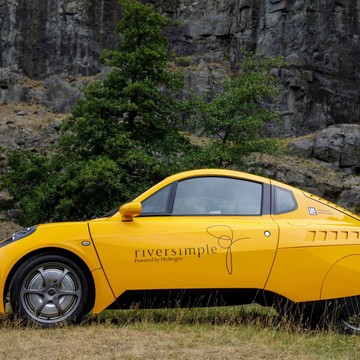
Nov 29, 2023 • 1h 30min
Cars of the future (NOT EVs!) - Transforming transport and business with Hugo Spowers of Riversimple Movement
Our guest this week is Hugo Spowers, Company Architect of Riversimple, whose purpose is 'To pursue, systematically, the elimination of the environmental impact of personal transport.' Modernity demands that we have personal transport and the thought of giving it up is one of the many sticking points when people try to imagine a way through to a regenerative future: nobody wants to be limited to their immediate vicinity for work, leisure or social connection. At the same time, we're becoming increasingly aware of the limitations of electric vehicles - Simon Michaux has explained in detail the logistical limitations to rare earth batteries, and the environmental catastrophe created by their miningWhich is what makes the Riversimple's hydrogen fuel cell car so transformative. They've gone right back to the basics of what makes a car in the first place and then how could it be made better - not just lighter and more efficient and fuelled by something that doesn't create greenhouse gases - but how could it be made so that the aims of the manufacturer and the customer are aligned - and both are aiming for a habitable planet. On its own, this would be inspiring - but Riversimple doesn't stop there. The company is structured with the innovative - and I genuinely believe transformative - 'Future Guardian Governance model' - Hugo describes this in near the end of the podcast so I won't go into it here, but it seems to me that if every company in the world shifted to this model tomorrow, by the day after, we'd be on our way to healing many aspects of the meta-crisis. So with this in mind, sit back and prepared for a fundamental shift in how we see our role in the world and how we could move towards the future we need, with Hugo Spowers of Riversimple. Riversimple https://www.riversimple.com/RIversimple Subscription model https://www.riversimple.com/subscription/Riversimple Future Guardian governance model https://www.riversimple.com/governance/Invest in Riversimple here https://www.riversimple.com/investment/Paul Hawken 'The Ecology of Commerce' https://uk.bookshop.org/p/books/the-ecology-of-commerce-revised-edition-a-declaration-of-sustainability-paul-hawken/883510?ean=9780061252792

Nov 25, 2023 • 1h 7min
Beyond the Brink is the Beginning with Richard Wain - Launching 27th November 2023
Words have the power to change worlds. Powerful words, powerfully written can open doors to the future. Beautiful words, beautifully written, can give us hope . Richard Wain's new collection of poetry is doing all of these, with panache, and heart and soul.We all know by now that we need total systemic change - and a central thesis of this podcast is that we'll get there best by creating narratives that build this - both highlighting the need for it and exploring possible paths through. What's becoming clear is that this is an emotional and spiritual journey long before it's a logistical one. So we need to find ways to reach beyond people's head-minds into their heart-minds and spirit-minds. With this in mind, our guest this week is a poet, an entrepreneur and an artist. Richard Wain is founder and director of the digital marketing agency Vu Online, and of the Positive Nature Network, both committed to creating networks of businesses that can support each other in the move towards a regenerative, flourishing future. He is also a poet with a commitment to celebrating openness and vulnerability and he has now written a beautiful, generative book of poetry called Beyond the Brink is the Beginning.I met Richard when he came to our 6 month Thrutopia Masterclass back in May of 2022 - and was struck by his capacity to grasp the big ideas. Then I began to read the poems that arose out of our classes and was really in awe of his capacity to take these big, complex ideas, find the emotional spark at their core and weave it into something that could open hearts and help others to understand what really matters. We've been planning this podcast for ages, but his book is coming out soon, so now is the time - though in the end, as always happens, we roamed far and wide beyond the book, to the positive nature network and how small businesses and their owners, who are often their founders and may well be the sole employee, can begin to be part of the solution. As ever, we approached our own edges, which, a bit like poetry, is what this kind of medium is all about. Richard's book will launch on 27th November 2023 at The Barrel House in Totnes. Go along if you can!Here's the event link: https://www.eventbrite.co.uk/e/beyond-the-brink-is-the-beginning-book-launch-tickets-74349440076Buy the Book here: https://www.beyondthebrinkbook.com/Positive Nature Network https://www.positivenaturenetwork.co.uk/Vu Online https://vuonline.co.uk/Richard on YouTube https://www.youtube.com/@richardwainpoet

Nov 22, 2023 • 1h 25min
Building Lifeboats to the Emerging Futures with Sophia Parker of the Joseph Rowntree Foundation
Sophia Parker, Emerging Futures Director at the Joseph Rowntree Foundation, discusses exploring paradigm shifts, challenging late stage capitalism, and supporting regenerative alternatives. They delve into trauma culture versus initiation cultures, address urgent poverty issues, and emphasize the importance of engaging the wider population to create a regenerative future. A call to action for immediate change is made.

8 snips
Nov 15, 2023 • 1h 31min
The Animate Earth Responds: Initiation in a time of Crisis with Alnoor Ladha and Lynn Murphy
Alnoor Ladha and Lynn Murphy, authors of "Post-Capitalist Philanthropy: Healing Wealth in the Time of Collapse," discuss the transition from trauma culture to initiation culture. They critique capitalism, explore wealth concentration, and emphasize the need for decolonization. They also delve into the mind-body connection, the importance of reclaiming history, and choosing our role in this crisis. The episode ends with a suggestion for a transformative book and gratitude towards the production team.

Nov 8, 2023 • 1h 13min
Bringing Indigenous food back to the people: a conversation with Josiah Meldrum of Hodmedod's
Join Josiah Meldrum, co-founder of Hodmedod's, as he passionately discusses reviving indigenous grains and pulses in the UK. He highlights the significance of sustainable farming and community support for biodiversity and health. The conversation delves into creating resilient food systems by connecting local farmers with consumers, fostering collaboration, and encouraging circular economies. Josiah also critiques traditional corporate practices in agriculture, advocating for a future where food systems focus on sustainability and local engagement.

Nov 1, 2023 • 1h 22min
Power to the People: Changing the way things work with Simon Oldridge
We all know the climate and ecological tipping points are terrifyingly close. What can we do - as individuals and collectively? Simon Oldridge has ideas that answer both of these. Simon first joined us back in episode #182 when he joined his colleague Anthea Simmons and they spoke eloquently about the strategies of the South Devon Primary group which are aimed at raising one progressive candidate in borderline constituencies in the UK, so that the hard right doesn't swan through the middle on a minority of the votes because the anti-Tory vote has been split (again). Getting progressive politicians into power is their primary aim, but they also want to make sure the candidates who become MPs understand the concerns of their constituents and are prepared to act as independent-minded individuals in the House of Commons, not simply lobby fodder. So that was a fun and sparky conversation, but it seemed to me at the time that we could have delved down a lot more deeply into SImon's broader work to find politically viable ways to address the climate and ecological emergency, particularly his work with Zero Hour, the campaign for the Climate and Ecology Bill and which has produced a number of detailed and fascinating reports, including one about the Ambition Gap we have as we head for Net Zero and another entitled, 'Creating a Nature-Rich UK'. Hence, we came back for another conversation - because apart from anything else, it's so enlivening to talk with someone else who spends their entire life thinking about these things: and if I can't have fun on the podcast, what's the point? I am well aware that many of you listening are not in the UK - and that politics is a very siloed space: we all have our own rules to work within and our own levels of bureaucracy and kleptocracy masquerading as democracy that we're trying to reform. So I hope that some of the ideas we explore, particularly the bigger ones of global power systems and routes to net zero and nature-based solutions strike home far outside the boundaries of this island. And yes, I still have Covid, so I apologise in advance for the state of my voice. Target Seats suitable for replicating South Devon Primary https://www.politicalprimary.org/target-mapSouth Devon Primary on Twitter https://twitter.com/sdevonprimarySouth Devon Primary on LinkedIn https://www.linkedin.com/company/sdevonprimary/Simon on Twitter https://twitter.com/SiOldridgeSimon on LinkedIn https://www.linkedin.com/in/simon-oldridge-17207a206/Zero Hour: https://www.zerohour.uk/Zero Hour Reports https://www.zerohour.uk/reports/Zero Hour on Twitter https://twitter.com/@CEBill_nowCREDS - https://low-energy.creds.ac.uk/ Stanford study: https://thehill.com/opinion/energy-environment/3539703-no-miracle-tech-needed-how-to-switch-to-renewables-now-and-lower-costs-doing-it/ Oxford study on how Decarbonising the Energy system could save $Trillions https://www.ox.ac.uk/news/2022-09-14-decarbonising-energy-system-2050-could-save-trillions-oxford-studyClimate and Ecology Bill:https://bills.parliament.uk/bills/2943Episode 182: South Devon Primary https://accidentalgods.life/primary-strategy-growing-a-new-voting-paradigm-in-the-south-devon-primary/

55 snips
Oct 25, 2023 • 1h 11min
Becoming Intentional Gods: Claiming the future with Indy Johar of the Dark Matter Labs
Indy Johar, co-founder of Dark Matter Labs, discusses the choice between human destruction and the potential for a new paradigm of interconnectedness. Topics include the future of ecosystems, the shift from individualism to entanglement, the role of events in societal transformation, self-agent technology, the influence of capital and the need for reform, the role of money in a future of autonomy and agency, and expanding the definition of capital.


